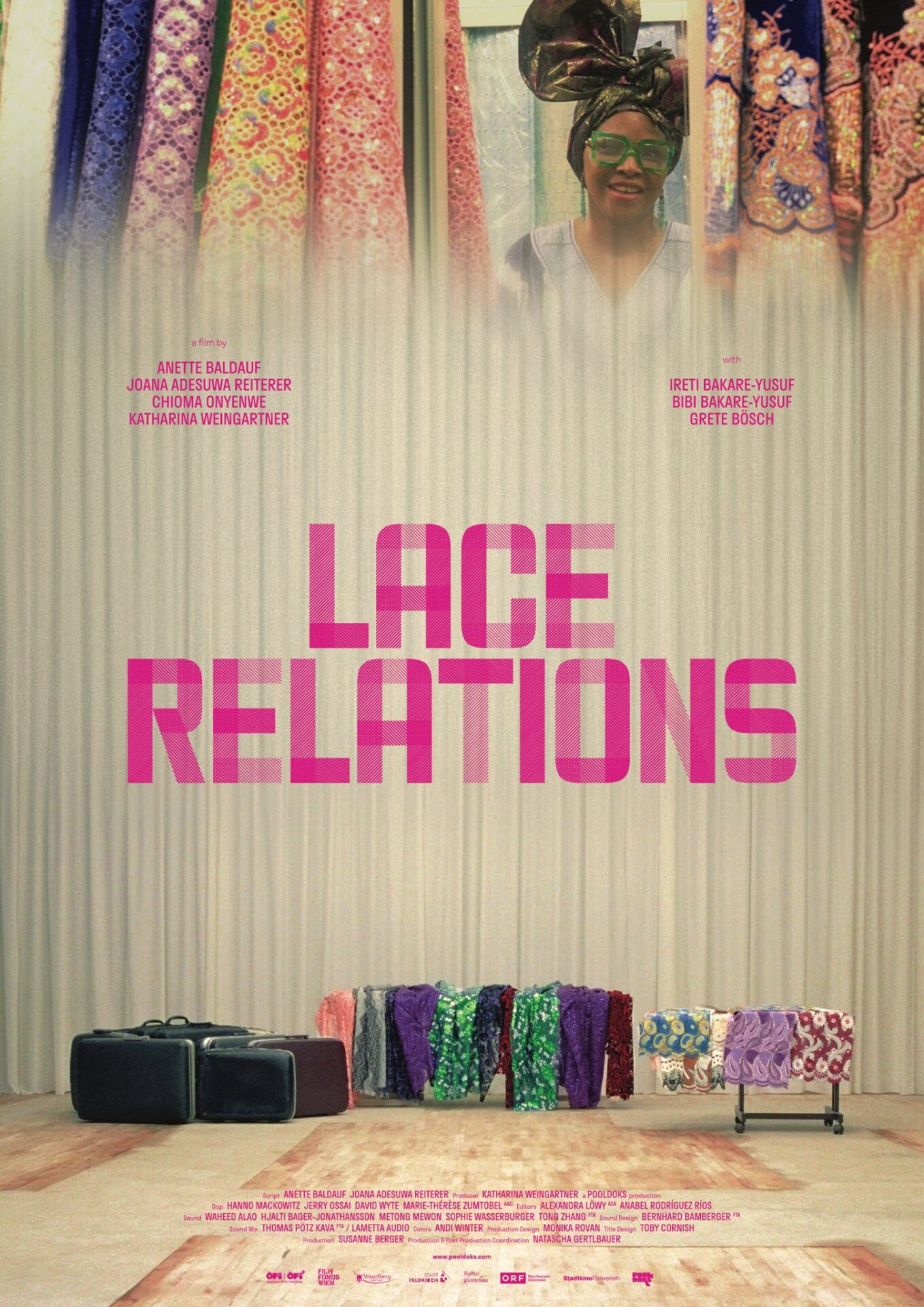In Lace Relations, directors Anette Baldauf, Chioma Onyenwe, Joana Adesuwa Reiterer, and Katharina Weingartner unravel the surprising global journey of lace, one that begins in the quiet textile mills of Vorarlberg, Austria, and ends in the vibrant lace markets of Lagos, Nigeria. This 88-minute documentary is not just about fashion; it’s about how a single fabric stitched together centuries of trade, colonialism, and cultural reinvention.
The film follows journalist Ireti Bakare-Yusuf and retired Austrian lace exporter Grete Bösch as they trace the origins of lace from its industrial birth in Europe to its transformation into a Nigerian fashion staple. Through their personal stories and archival research, Lace Relations reveals how lace became a vessel of memory, status, and resistance.
From “White Gold” to Cultural Gold
Lace was once considered “white gold” in Austria, enriching small towns through textile exports. But its journey to Nigeria tells a different story,one of colonial entanglement, hidden trade routes, and cultural adaptation. The documentary explores how lace, damask, and other fabrics were introduced through colonial channels and eventually absorbed into Nigerian fashion, particularly among Yoruba women who turned it into a symbol of elegance and social standing.
The film also highlights the collapse of West Africa’s local textile economy, showing how imported lace reshaped markets and traditions. It’s a story of loss and gain, of how global capitalism and cultural pride intersected in unexpected ways.
A Story Told Through Fabric and Family
What makes Lace Relations especially compelling is its personal lens. Ireti Bakare-Yusuf is the daughter of Jarin Yusuk-Seriki, a legendary figure in Lagos’ lace market. Her journey is not just investigative, it’s emotional. Through interviews, market visits, and family reflections, the documentary becomes a tapestry of generational memory and identity.
The film’s visual style is equally striking. Colorful lace fabrics hang like curtains of history, while suitcases and sewing machines evoke the mobility and labor behind every thread. The cinematography, led by Alexandra Löwy and Anabel Rodríguez Ríos, captures both the intimacy and grandeur of this cross-cultural story.
Conclusion
Though rooted in Nigerian fashion, Lace Relations is a global film. It premiered at AFRIFF 2025 and has screened at international festivals like BIFED, sparking conversations about cultural appropriation, economic disparity, and the resilience of African identity. It’s a Nollywood documentary that transcends borders, reminding viewers that fashion is never just about clothes, it’s about history, power, and belonging.


